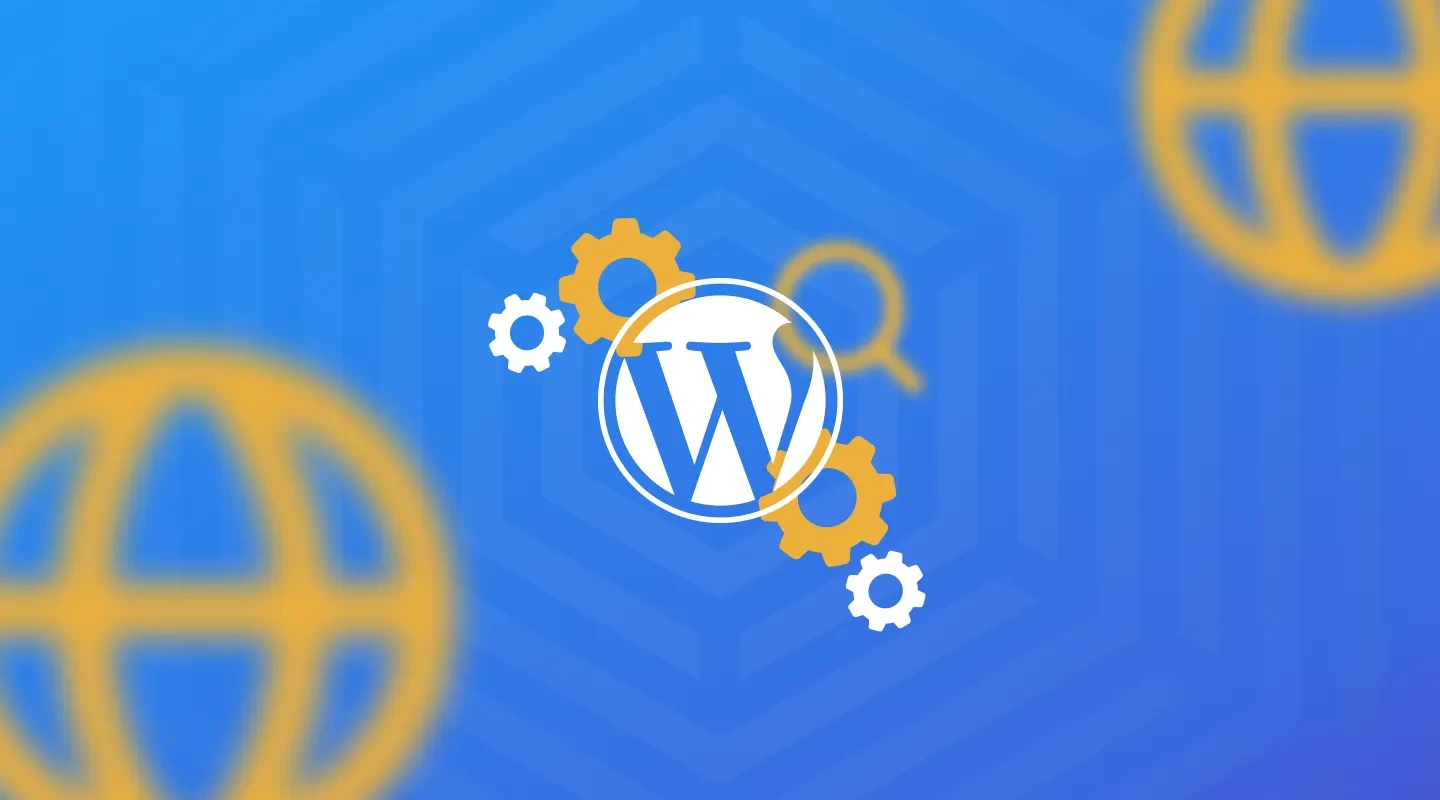We use cookies
This site uses cookies from cmlabs to deliver and enhance the quality of its services and to analyze traffic..
We use cookies
This site uses cookies from cmlabs to deliver and enhance the quality of its services and to analyze traffic..
Last updated: Jun 13, 2024

Disclaimer: Our team is constantly compiling and adding new terms that are known throughout the SEO community and Google terminology. You may be sent through SEO Terms in cmlabs.co from third parties or links. Such external links are not investigated, or checked for accuracy and reliability by us. We do not assume responsibility for the accuracy or reliability of any information offered by third-party websites.
Having a WordPress website only is not enough to reach the top of Google's SERP, it takes consistent and in-depth optimization steps so that search engines can prioritize your website over your competitors.
In this article, we will help you understand the WordPress SEO that can be implemented on your website. We will start from the most basic things, namely the definition, plugins, to WordPress SEO tips that you need to master.
WordPress is one of the most popular content management systems (CMS) in the world. First launched in 2004 by Matt Mullenweg and Mike Little. You can access it for free because this CMS is open-source.
WordPress allows users to create and manage websites more easily, without having to understand coding. Users can easily publish articles, set the appearance or theme of the page, and add certain features. In fact, in 2020 WordPress can also be used as an e-commerce site.
The advantages of WordPress are that it is quite simple and easy to use, provides many themes based on user needs, and has a large online community. This makes WordPress loved by many people.
After you know the meaning of WordPress, then we will explain its features. Initially, WordPress aimed to help its users to display simple text on the website. Over time, WordPress features have also grown and become more complete. Take a look at the following WordPress features:
Post is the main feature that you can use to publish articles in WordPress. Using it is quite easy, you just need to click on this menu and a sub-menu will appear, click add new or all post. Select the add new sub-menu if you want to publish a new article or click all posts to view all published articles.
Pages is a feature used to create a page. The way it works is similar to the post feature, the difference is that publications created using the Pages feature tend to be static or updated less frequently.
The Pages menu also has two sub-menus, namely All Pages and Add New. The two functions are different, All Pages is used to view all pages that have been successfully created. Meanwhile, the Add New sub-menu is useful for creating new pages on a WordPress site.
The media feature is useful for adding content such as images, videos, and other media to articles that you will publish. Through this menu, you can add and manage specific images or videos.
Comments is a WordPress feature that can be used to manage comments on published articles. In this comment menu, you can set which comments you want to appear publicly or which you want to filter.
The WordPress appearance feature can be used to adjust the appearance of the website according to your wishes. This menu provides a large selection of WordPress themes that users can use.

There are more than 59,000+ WordPress plugins that you can use. Some of them you can use to support the implementation of SEO on your website. In this guide, we will uncover the information regarding the following two WordPress SEO plugins:
Yoast SEO is one of the WordPress SEO plugins that has helped millions of websites around the world get higher rankings on search engines. This plugin is available in free and premium versions, which can be used to support your SEO needs.
Some of the Yoast SEO features include supporting SEO enhancements such as meta tags and canonical URLs, providing an XML sitemap, having title and meta description templates, integrating with Schema.org to help create structured data, speeding up loading times, being able to control breadcrumbs, and much more.
Besides Yoast SEO, there is another WordPress SEO plugin, namely All in One SEO Pack. This plugin is one of the most popular WordPress plugins that has been used by more than 3 million websites.
All in One SEO Pack is available in both free and paid versions which offer a comprehensive solution. In addition, this plugin is also equipped with features and tools that support your needs in improving the quality of your SEO.
The benefits of the All in One SEO Pack are to help you add title tags, meta descriptions, select relevant keywords, create XML sitemaps, optimize sites on social media, connect websites to Google Search Console, and more.

There are many ways to improve the quality of your SEO, such as implementing on-page and off-page SEO strategies. From the many existing SEO optimization steps, we present some WordPress SEO tips that can effectively optimize the performance of your website.
When a user first installs WordPress, your website will use the default theme. It could be the one you do not want. Luckily, there are thousands of free themes available on the WordPress dashboard that you can use.
However, choosing a WordPress theme should not be careless because you have to pay attention to the SEO-friendliness level of the theme. For example, when you choose a theme that has scripts and plugins that can slow down your website's performance, this can certainly affect the quality of the user experience.
Therefore, it is important to run a WordPress theme demo via the web.dev tool provided by Google. This tool will give you insight into the potential performance of your website and any possible SEO issues.
WordPress lets you sort posts by specific categories and tags. Categories and tags are used to group some content on your website according to what they have in common. This is equivalent to adding a hierarchical structure to the website.
Apart from making it easier for users to find the content they need, this will also help search engines better understand the structure of your site. Not only that, but creating categories and tags on the website will make it easier for you to manage content according to the topic.
Permalink or slug is a link address that identifies your website. WordPress provides several permalink display options, but you should make sure that your website uses SEO-friendly permalinks.
In order to be more SEO-friendly, you need to pay attention to keywords and link levels. It is highly recommended to use a maximum of 3 levels on the permalink. In WordPress, you can choose the permalink structure via the Settings > Permanent Link menu.
If you find it difficult to optimize your permalinks yourself, you can use WordPress SEO services to help you. They will help you analyze what kind of permalink structure will improve your website's performance.
Many beginners choose keywords based on their guesses. Of course, this is not a good SEO practice. You need to do keyword research to find out what keywords people are looking for.
That way, you can optimize each piece of content for certain keywords. This can lead to more organic visits. One of the tools that you can use in keyword research is Google Keyword Planner and Google Trends.
Good content is one that is clearly structured so that readers and search engines can understand the information quickly. In general, the title of the article in WordPress by default is the H1 tag. Apart from adding titles, you also need to add another heading structure from H2 to H6 in an article.
Search engines will also check and crawl heading tags to find relevance between a user's search query and your article. Therefore, you can add a number of target keywords into the heading if possible.
Meta information that needs to be optimized such as title tags, meta descriptions, alt text, image captions, and so on. The best practice in optimizing meta information is to insert potential keywords in it so that search engines can find the relevance between a user's search query and your content.
In addition, you also need to ensure that the length of the meta information is proper to the recommended length so that it is not truncated on the search engine results page. Use cmlabs Title & Meta Description Checker to check the suitability of these metrics for free.
You need to put internal links to help Google find out the relationship between content on your website. This can increase page authority and also make it easier for users to navigate from one content to another.
Adding internal links in WordPress is very easy. You just need to select the text you want to link to, then click the chain icon and enter the URL or link you want to go to. This will turn the text in your article into a hyperlink.
Comments are one of the user engagement indicators on your website. However, you need to make sure that the comments you get are really from readers and not spam.
Spammers usually post some spam comments with poor-quality backlinks that can harm your reputation and lower your ranking in organic search. Therefore, it is important to prevent comment spam on your website. That way, the reputation and credibility of the website are maintained.
Some recommended WordPress SEO tips to prevent comment spam are do not allow anonymous comments, use CAPTCHA to prevent automatic comment spam, use the nofollow attribute, do not allow hyperlinks in comments, or use a WordPress SEO plugin to monitor comment spam.
An XML sitemap is useful for facilitating the crawling and indexing process carried out by search engines. Adding an XML sitemap may be quite difficult for a beginner, so you can take advantage of WordPress SEO services to help you. In addition, you can also use tools such as the Sitemap Generator to create a sitemap for your website.
Backup is one of the WordPress SEO tips that you need to do to minimize the impact of missing or damaged files. By backing up your website, you will have a copy of your files that you can use anytime. You can use a WordPress SEO plugin to do backups.
That's an explanation of WordPress SEO tips that you can apply to your website. Hopefully, some of these tips can help you increase your website's organic traffic. If you feel that optimizing your website personally is hard, then don't hesitate to ask for help from WordPress SEO services.
Of course, the results are not instantaneous and it may take some time for the search engines to reevaluate the changes made to your website. However, the effort and time you put in will certainly give good results later.
WDYT, you like my article?